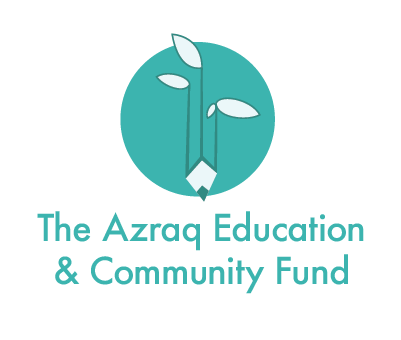Mafraq
We’ve spent the last two days in Mafraq at Pastor Nour’s church. Mafraq (which means crossroads in Arabic) is a city of about 60,000 on the Jordan/Syria border. Since the conflict started in Syria in 2011, refugees have flooded the town. Today, approximately 15,000 refugees live inside the city (the main camp, al-Zaatri, is only a few miles away). Rent prices have skyrocketed and, unable to work, the Syrians are forced to live in terrible conditions.
Pastor Nour began his mission when there were fewer than a hundred refugees. He started distributing the most basic essentials to people: mattresses, pillows, and gas stoves. As the situation worsened and the number of refugees increased, he too increased his efforts. Today, he has a community of both Jordanian and international volunteers and cooperates with major NGOs like Mercy Corps to continue his community outreach program. With the donations we raised, we purchased 600 one-pound tins of powdered baby milk and another large shipment of diapers and women’s sanitary pads to be distributed through the church. In fact, Lexi was able to hand out some of these items today to a group of 20 Syrian women. They also selected clothing for themselves and their families from the bags we sent you pictures of last time.
The process begins when the church registers new refugees as they arrive to Mafraq. They hold distributions at the church (like the one Lexi helped with), taking care to ensure that people are treated with respect and dignity. People have lost everything and it is humiliating to have to beg for simple things like second-hand clothing and milk. In addition to distributions, field workers visit individual family homes to check in on them, bring supplies, and lend an ear and a shoulder for support. Several volunteers mentioned how important it is to Syrians to host visitors—perhaps because hospitality is such a deeply ingrained part of the culture.
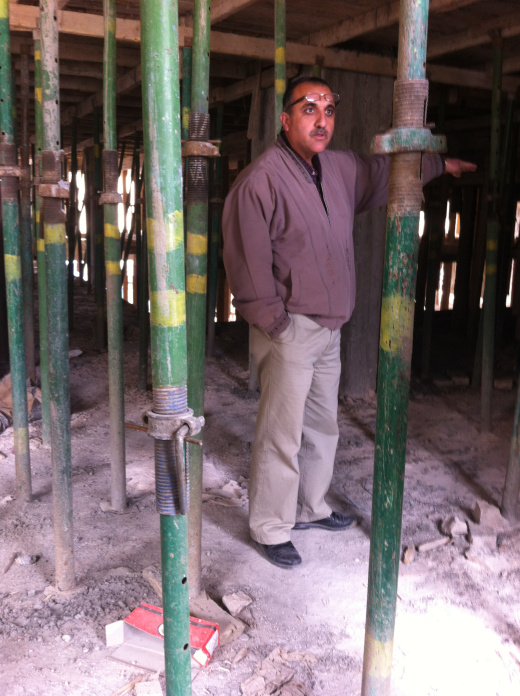
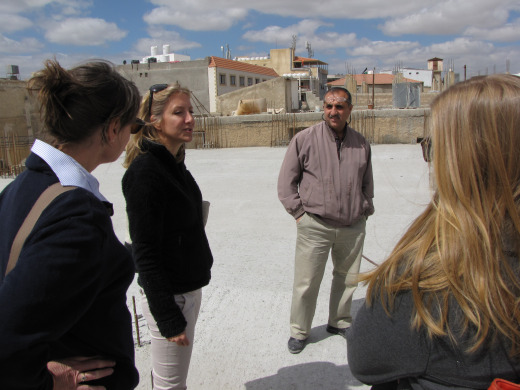

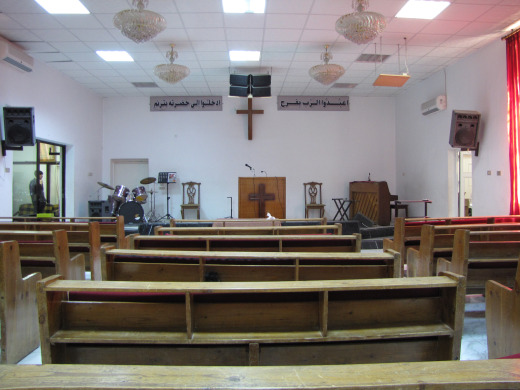

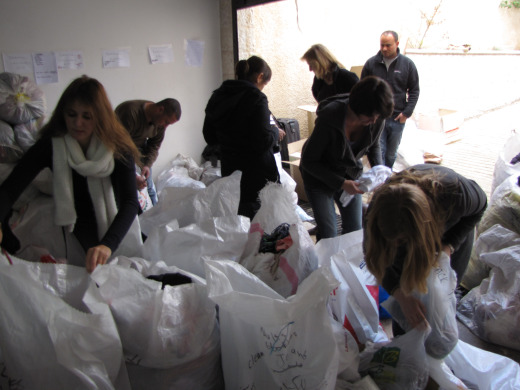
We’ve spent the last two days sorting supplies and accompanying the field workers on their visits. The situation varies from family to family. The first family we visited arrived from Homs, Syria three months ago. Over Arabic coffee, they told us about the situation in Homs, their loved ones who were injured or killed, and their homes that were destroyed. Like most Syrians, they were processed through the Zaatri refugee camp. Although food, tents, medical care and schools for children are provided by the United Nations, many choose to leave because of poor conditions, security concerns, or maybe the humiliation of living in a camp. Syrians can go only if they are sponsored by a Jordanian or someone living outside the camp. With so many new arrivals, the cost of living in Mafraq has increased dramatically so it’s hard to know whether they’re better off in the camp or on their own.
This became quite clear this afternoon when we accompanied one of the Jordanian volunteers to visit newly-registered refugees. After leaving the camp, each family (or group of families living together in most cases) is eligible to receive a ‘starter package’. This includes mattresses, blankets, pillows, a gas stove and gas canister. The amount of assistance provided depends on how many members are in the family, the family’s financial situation, and amount of help they’re receiving from other charities. One family we visited lived in a storefront that was divided for privacy with UNHCR-issued blankets. Another, a family of four, lived in a concrete room with no bathroom behind a large animal corral. While a Jordanian church volunteer verified the families’ information and needs, we passed out small gifts for the children (colored pencils, crayons, drawing paper, and sweets). We will return tomorrow to each of the families we visited today to deliver the starter packages and spend time with families. It’s late so we can’t write more. We’ll send another update tomorrow with pictures. Thank you again for all your love, support, and donations!
